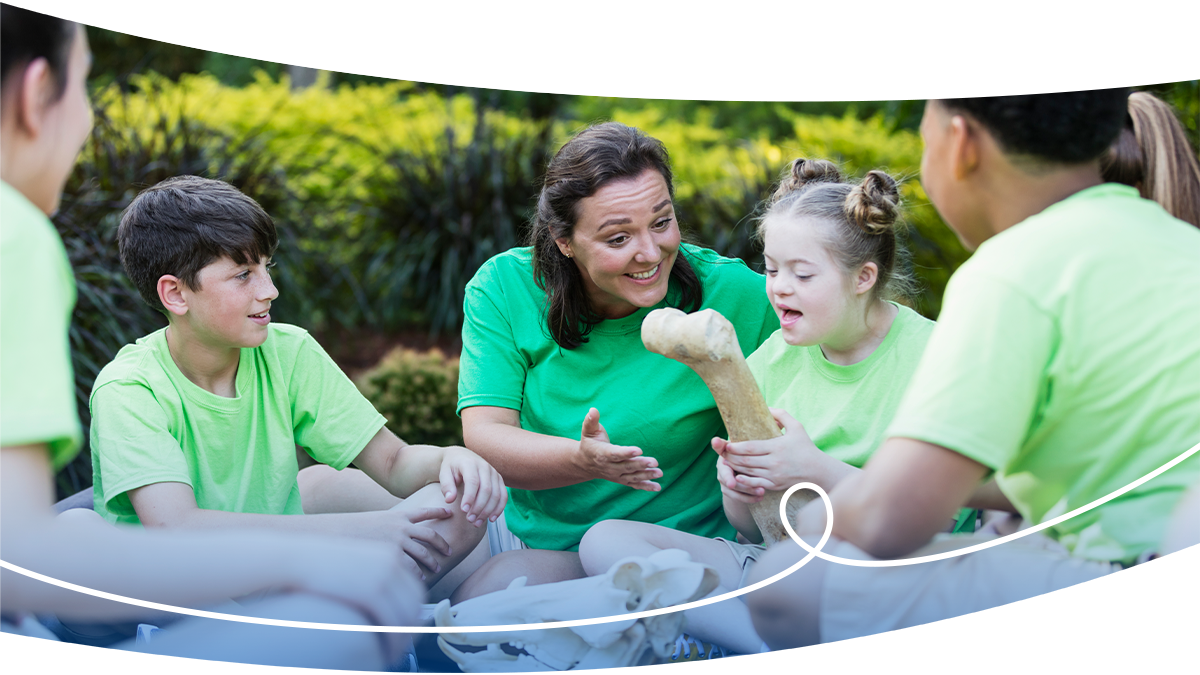
June 14, 2017 | By: Ben Elble, Director , Children’s Association for Maximum Potential (CAMP)
Categories: Family Support
I started working at Children’s Association for Maximum Potential (CAMP) 12 years ago, but have been in the disability and special health care needs camping industry for 26 years. At CAMP, we run week-long summer programs and school- year weekend respite camps for children and adults with disabilities and special health care needs.
In that time, I’ve seen the camp experience change many children’s lives.
I’ve also seen families feel the benefits of having some time for respite and learning how that separation feels.
Sending a child to camp for the first time is usually harder for the parents than for the kids! After all, when you’ve spent so many hours advocating and caring for your child, it’s hard to believe that your child will be okay in someone else’s care.
Here are a few things that I’ve seen parents do to get the best camp experience for their children and themselves.
Being open and honest about what your child needs is so important. I really can’t stress it enough.
As camp staff, we want and need to know as much as we can about your child’s behaviors and needs so we can take good care of them. And so camp can be a positive and fun experience. We want your child to love it – and we want you to love it too.
If we know, for example, that your child can only sleep if they follow a certain bedtime routine, we can help them follow that routine at camp. Or if they’re sensitive to noise, we can help them manage a camp-wide event. And if there are morning exercises that help them have a better day, we can work those into their schedule.
This is especially important if your child is nonverbal. Sharing your expertise will help us better understand your child.
At CAMP, all of our staff and volunteers go through a 4-day training that includes behavior management techniques and learning how to help someone else with personal care. Most camps don’t have that level of training. So, sharing your child’s needs with their camp staff is a very important part of choosing a camp and learning whether or not the camp has staff who are trained to meet those needs.
If it’s your child’s first time going to camp, spend time so both of you can get to know it before you show up at drop-off. This can help your camper feel comfortable and give you confidence that your child will be well taken care of.
Here are a few ideas for getting to know your child’s camp:
In general, most or our campers with disabilities or special health care needs don’t get very homesick. This might be because they’re having too much fun. I’ve seen a lot more homesickness at our camp for typically developing siblings. Sometimes it’s even harder for a parent than a child.
Here are some things you can do to manage the separation for both you and your child:
Different camps have different rules about technology.
We want our campers to be as unplugged from the Internet, social media, and gaming as much as possible during the time they’re at camp. If they’re playing games on their iPad, they’re probably not building as many social skills or getting out in nature.
However, many of our campers do use technology for self-management. If a child needs their iPhone to get reminders, for example, we want to keep that schedule going.
I’d advise parents to have an open conversation about your kids’ general technology use with the camp director. And if it’s not absolutely necessary, leave it at home.
I think every child should have a chance to get out of their routine and try camp. It’s a safe first step towards building the independence that they might have as an adult. I hope that these tips have given you some ideas for helping your child enjoy the camp experience.

A few years before my son George graduated from high school, our family discovered a Special Olympics program called FUNdamental Sports.
Categories: Family Support, Transition to Adulthood

Kids need to learn about emergencies in ways they can understand and talk about.
Categories: Family Support

Your emergency plans might look different, but no matter how they look, they can make all the difference.
Categories: Family Support